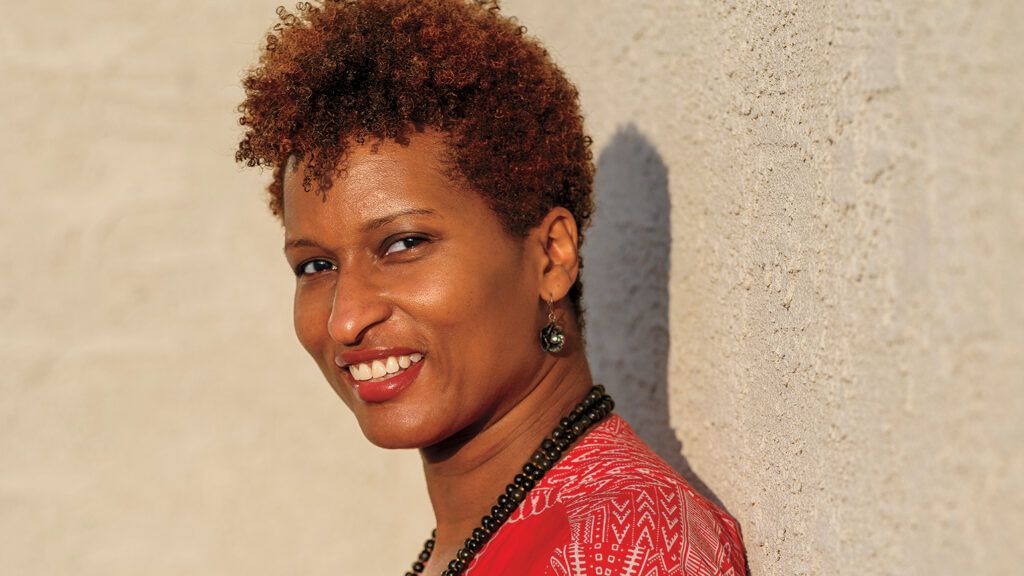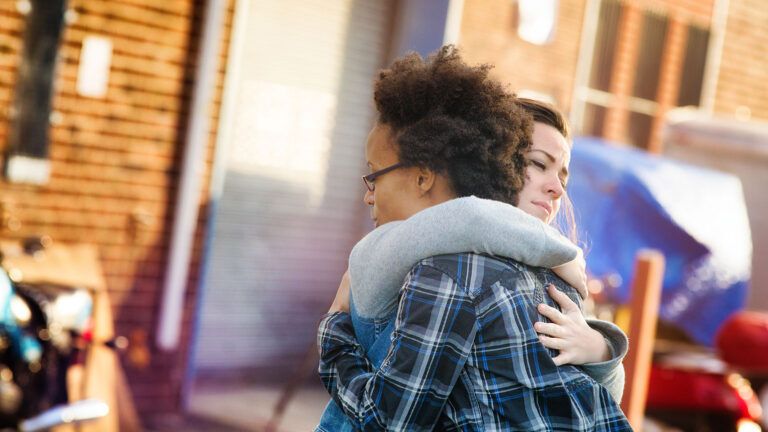I was 10 years old when I realized I couldn’t answer a simple question put to my fifth-grade class at The King’s Christian School, in Haddon Heights, New Jersey.
It was 1984. My teacher gave us a special assignment: drawing a flag depicting our family’s origin. I was excited. I wasn’t great at drawing, but this project sounded fun. First, I had to find out the answer to my teacher’s question: “Where does your family come from?”
At dinner that night, I told my parents about the project.
“What flag should I make?” I asked them. “Which country does our family come from?”
An uncomfortable look came over my mother’s face. “I have no idea,” she snapped. “Our family migrated from Georgia. That’s all I know.”
Why did she sound mad? I knew from her tone not to press the issue.
I was one of a handful of Black students at my school, but that didn’t bother me even though I looked different from many of my classmates. I had friends at school and an even bigger social group at my church, Tabernacle of Faith, in nearby Camden.
I’d always assumed my ancestors came from somewhere in Africa, and I was hoping my parents could help me figure out which country. My mother’s abrupt response left me feeling mystified and a little anxious.
The next day, I told my teacher I could trace my family only back to Georgia. He seemed puzzled and told me to do my best with the information I had.
Georgia was a state, not a country, so to me, that flag didn’t count. I decided to draw a flag representing the Garden of Eden, since that’s where all people come from. I drew a green border with diagonal purple and yellow stripes and a star above the stripes. I can’t remember why I thought that design represented Eden. Like I said, I wasn’t a great artist.
Each student presented their flag to the class and talked about their family’s roots. When it was my turn, I was a little nervous but proud of what I had come up with. My confidence crumpled as my classmates stared at me in confusion. A flag for Eden? What was I talking about? Eden wasn’t even a country.
I sat down, embarrassed, and felt worse when the teacher hung all the flags above our desks. I recognized many of the flags from the Summer Olympics I’d seen on television earlier that year. Most were from Europe, a few from elsewhere. I was the only one with no country of origin.
Where did I come from? Why wouldn’t my parents tell me? Was something wrong with my family?
I have never been a target of outright racism. But like most African-Americans in the United States, I have always been aware that I am in the minority. Wherever I go, I often have to tell myself, You belong here. Not knowing how my family fit into the American story made that harder.
Church was my refuge. Growing up in a predominantly African-American church, I was reminded every Sunday that I was made in God’s image and that he loves me unconditionally.
Still, church could not answer my question about my family’s origins. It was not until college that I finally learned the reason for my mother’s reticence. That realization presented me with a whole new set of questions.
At the University of Delaware, I took a Black American Studies course and learned about the realities of slavery. Earlier school textbooks hadn’t left out slavery. But they did not go into detail about the cruelties of the transatlantic slave trade or the horrific treatment of enslaved people on American plantations.
My ancestors had been enslaved. That’s why my mother didn’t want to talk about it. It felt degrading. Probably she didn’t know many details. Enslaved families were forcibly separated and sold off. Records are spotty or nonexistent. Genealogy is a fun and enlightening pastime for many people. For African-Americans, it often leads to a void.
I tried to understand all of this disturbing information from a Christian perspective. But I kept coming back to an unanswerable question: Lord, how could you let this happen?
I also couldn’t help asking how God could love me so much that he gave his only Son to redeem me and yet many people in my own country regarded me as inferior. I lost count of how many times I’ve been subtly judged simply because of the color of my skin.
For years, I tried to put my difficult questions aside. I graduated from college, married a wonderful man named Kenny, pursued a successful career in information technology and gave birth to two beautiful baby girls, Kennedi and Kassadi.
Now that I was a mother, I faced the same decision that my mother had. What should I tell my daughters about their ancestry?
Kenny and I decided on a multipronged approach. First, we would raise our girls in church and give them a strong foundation in faith. At the same time, we would teach them that, because they were made in God’s image, they are beautiful just as they are and equal to everyone else.
Kenny and I agreed that we would be up-front with our girls about the realities of slavery and race relations in the United States.
We read books, had frank conversations and visited African-American history museums wherever we found them. I remember one particular exhibit at the Charles H. Wright Museum in Detroit. It was a full-size re-creation of the lower deck of a transatlantic slave ship.
None of us said a word as we stared at the rows of bodies stacked on top of each other like firewood. The exhibit continued to a slave-trading block and a branding station, where skin would be seared with a new owner’s mark.
I knew my daughters were asking the same question I had: Why, God?
I also wanted to celebrate signs of progress. My daughters were toddlers when the U.S. elected its first Black president. They were able to watch a Disney movie with a Black princess, something I had never imagined possible!
They were adolescents when the movie Black Panther was released. I was excited because I knew the movie offered a positive vision of a place filled with beautiful, accomplished, powerful, intelligent and resourceful people who looked like me.
I was not prepared for the intense emotions that washed over me when I heard the African accents and saw that vision come to life on-screen. It was as if the security and belonging I had always experienced at church now encompassed the entire world.
Was this the answer to my lifelong questions? An escape into another reality where I was accepted and valued? It felt like a homecoming. But to where?
Not long after Black Panther came out, my sister took a DNA test to determine our family origins. I couldn’t wait for the results. Everything seemed to be coming together. After all these years, I would finally know where I came from.
My sister shared the results as soon as she got them. My first reaction was puzzlement. Then disappointment.
There was no clear answer about our ancestry. The highest percentage, about one third, was Nigerian. The rest was a mix of seven other African and seven European ethnicities.
Our family had been scattered and sold off. It was likely women had been raped and bore children by white slaveholders. Customs, traditions, lineages had been blurred or lost. Even with access to historical records, there was no way I could have completed that fifth-grade flag project.
Watching the Summer 2020 Olympics, I tried to muster some excitement when I saw the Nigerian flag in the opening ceremonies. The emotion just wasn’t there.
Where did I come from? Where was God in my family’s painful story? After all these years, I still didn’t know.
Or did I? Maybe my question felt so impossible because I was looking in the wrong place for answers.
All my life, there was one place where I had felt like I belonged: church. And not just church. Every time I prayed, alone or with others, I felt at home.
My home was not in my ancestry. It was not anywhere on this earth. Not even in Wakanda, the imaginary land in Black Panther.
My home was with God.
I may never know why God did not prevent slavery and racism. What I don’t understand, I leave at the foot of the cross. I get on with the work of bringing God’s justice, mercy and healing to my corner of the world.
I am proud that I am a Black woman in America. A woman of strong Christian faith, a professional, a wife, a mother who has raised confident, faith-filled daughters. I serve at my church, volunteer in my community and, together with alumnae sisters from my college sorority, help with local voter registration drives and other projects to help promote social justice.
At the end of the day, what other people think or say about me does not determine who I am. When I stand before God at the end of my earthly journey, my lineage, citizenship, race or socioeconomic class will not matter.
What matters is that I am a beloved child of God.
It turns out I was onto something when I drew my fifth-grade flag. Family history is good to know about, but ultimately all people share a common origin: We are God’s own.
For more inspiring stories, subscribe to Guideposts magazine.





